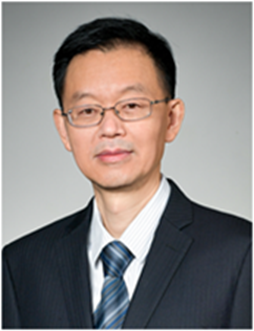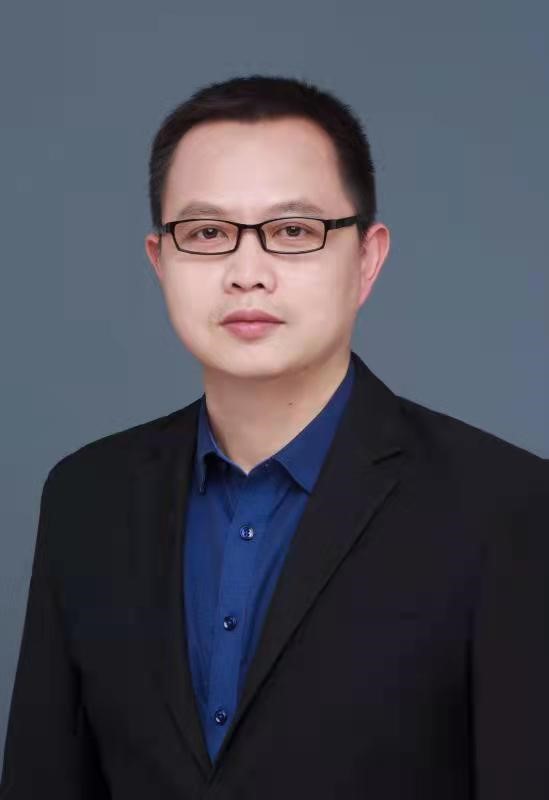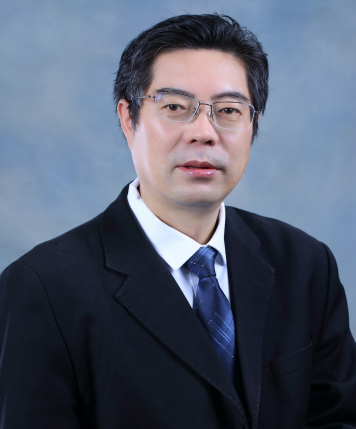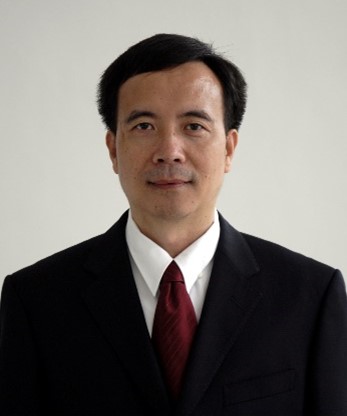Automation vs Artificial Intelligence
当自动化遇上人工智能
Panelists:
Ø Professor Xinping Guan, Shanghai Jiao Tong University, China
Ø Professor Shihua Li, Southeast University, China.
Ø Professor Wendong Xiao, University of Science and Technology Beijing, China
Ø Lihua Xie (Nanyang Technological University, Singapore)
Chair: Professor Ben M. Chen, Chinese University of Hong Kong, China
Abstract: The 44th Chinese Control Conference (CCC 2025) proudly presents this plenary panel session to chat on general issues related to automation and artificial intelligence (AI). We are honored that four prominent experts and educators in the field will join this panel to share their experience, expertise and visions, and to discuss challenges and opportunities in automation and AI. Through direct dialog with these renowned panelists, we aim to gain a deeper insight into some fundamental and emerging problems in research and applications. This panel will also serve as a platform for exchanging ideas and debating general issues in the field. It offers an opportunity too for the audience, students and junior researchers in particular to hear the opinions and advices of our renowned experts on issues we often face.

Xinping Guan is Dean and Chair Professor of the School of Electronic Information and Electrical Engineering at Shanghai Jiao Tong University. He is an IEEE Fellow, a Distinguished Professor of the Changjiang Scholars Program of the Ministry of Education, a recipient of the National Outstanding Youth Fund, and a national talent of the New Century Talents Project. With nearly three decades of research in network systems theory and its applications, Professor Guan has pioneered foundational theories and methods for distributed sensing and collaborative control in networked systems. He has made systematic, innovative contributions to the co-design theories and methods of sensing-transmission-control. His research achievements have earned two National Natural Science Second Prizes (ranked 1st and 2nd, respectively), the IEEE TCCPS Industrial Technology Excellence Award, two First Prizes in Natural Science from the Ministry of Education, and two First Prizes in Technology Invention from Shanghai (both ranked 1st). He has also received the IEEE Transactions on Fuzzy Systems Outstanding Paper Award and more than ten Best Paper Awards at academic conferences.
Professor Guan has published over 400 papers in leading journals, including 298 in IEEE Transactions and Automatica and 50 in major Chinese journals, with over 28,000 citations on Google Scholar. He has authored eight academic books, held over 130 authorized patents, and led his team to formulate six new international standards. He has consistently been recognized as a Highly Cited Scholar by Elsevier for several years. He serves as an Executive Director of the Chinese Association of Automation, Vice Chair of the Control Theory Committee, and President of the Shanghai Association of Automation. Previously, he was Deputy Secretary General of the Ministry of Education’s Science and Technology Committee. He has served as an editorial board member for eight journals, including IEEE SMC-C and IEEE/CAA Automatica Sinica.
 Shihua Li received his bachelor, master, PhD degrees all in automatic control from Southeast University, Nanjing, China in 1995, 1998 and 2001, respectively. Since 2001, he has been with the School of Automation, Southeast University, where he is currently a Chief Professor, Jiangsu Specially Appointed Professor, Vice Dean of the School of Automation. He is the Director General of Jiangsu Association of Automation. He is the Chairman of IEEE IES Nanjing Chapter and an IEEE-IES Distinguished Lecturer. He is a Fellow of IEEE, IET, AAIA and CAA. He served as an editor or associate editor of International Journal of Robust and Nonlinear Control, IEEE Transactions on Industrial Electronics and Advanced Control for Applications.
Shihua Li received his bachelor, master, PhD degrees all in automatic control from Southeast University, Nanjing, China in 1995, 1998 and 2001, respectively. Since 2001, he has been with the School of Automation, Southeast University, where he is currently a Chief Professor, Jiangsu Specially Appointed Professor, Vice Dean of the School of Automation. He is the Director General of Jiangsu Association of Automation. He is the Chairman of IEEE IES Nanjing Chapter and an IEEE-IES Distinguished Lecturer. He is a Fellow of IEEE, IET, AAIA and CAA. He served as an editor or associate editor of International Journal of Robust and Nonlinear Control, IEEE Transactions on Industrial Electronics and Advanced Control for Applications.
His main research interests include modeling and nonlinear control theory (nonsmooth control, sliding mode control, disturbance rejection control, adaptive control, etc.) with applications to mechatronic systems, including motion control, automobile engine control, manipulator, robot, power electronic systems, etc. He has published 3 monographs and over 300 international journal and conference papers with more than 32000 citations (Google Scholar). He is one of Clarivate Analytics Highly Cited Researchers (Engineering) all over the world in 2017-2023, one of the Most Cited Chinese Researchers from Elsevier (Control and system engineering), 2015-2023. He is a winner of Nagamori Award form Nagamori Foundation.

Wendong Xiaoreceived the B.S. Degree in Applied Mathematics and Ph.D. Degree in Automatic Control Theory with Applications from Northeastern University, Shenyang, China, in 1990 and 1995, respectively. He held various academic and research positions with Northeastern University, China; POSCO Technical Research Laboratories, South Korea; Nanyang Technological University, Singapore; and the Institute for Infocomm Research, Singapore. He is currently a Professor with the School of Automation & Electrical Engineering, University of Science and Technology Beijing, China.
Professor Xiao’s current research interests include wearable computing, wireless intelligent sensing, digital healthcare, energy harvesting based network resource management, as well as equipment fault diagnosis and predictive maintenance. He has published about 200 Journal papers. He is a Senior Member of IEEE, the Director of the Chinese Institute of Command and Control Technical Committee on Intelligent Wearable Technology, Vice Director of the Health Engineering Branch of Chinese Society of Biomedical Engineering, and Vice Director of the Intelligent IoT Systems Technical Committee of the China Simulation Federation. He is a member of the steering committee of the China Wearable Computing Conference and the China AI+Wearable Technology and Industry Conference.

Lihua Xie received the Ph.D. degree in electrical engineering from the University of Newcastle, Australia, in 1992. Since 1992, he has been with the School of Electrical & Electronic Engineering, Nanyang Technological University, Singapore, where he is currently President’s Chair in Control Engineering and Director, Center for Advanced Robotics Technology Innovation. He has served as the Head of Division of Control and Instrumentation and Co-Director, Delta-NTU Corporate Lab for Cyber-Physical Systems. He held teaching appointments in the Department of Automatic Control, Nanjing University of Science and Technology from 1986 to 1989.
Dr Xie’s research interests include robust control and estimation, networked control systems, multi-agent networks, and unmanned systems. He has published 11 books and numerous papers in the areas, and holds 25 patents/technical disclosures. He was listed as a highly cited researcher by Thomson Routers and Clarivate Analytics. He is an Editor-in-Chief for Unmanned Systems and Associate Editor for IEEE Control System Magazine. He has served as Editor for IET Book Series in Control and Associate Editor for a number of journals including IEEE Transactions on Automatic Control, Automatica, IEEE Transactions on Control Systems Technology, IEEE Transactions on Network Control Systems, etc. He was an IEEE Distinguished Lecturer (01/2012–12/2014) and the General Chair of the 62nd IEEE Conference on Decision and Control (CDC 2023). He is currently Vice-President of IEEE Control System Society. Dr Xie is Fellow of Academy of Engineering Singapore, IEEE, IFAC, and CAA.